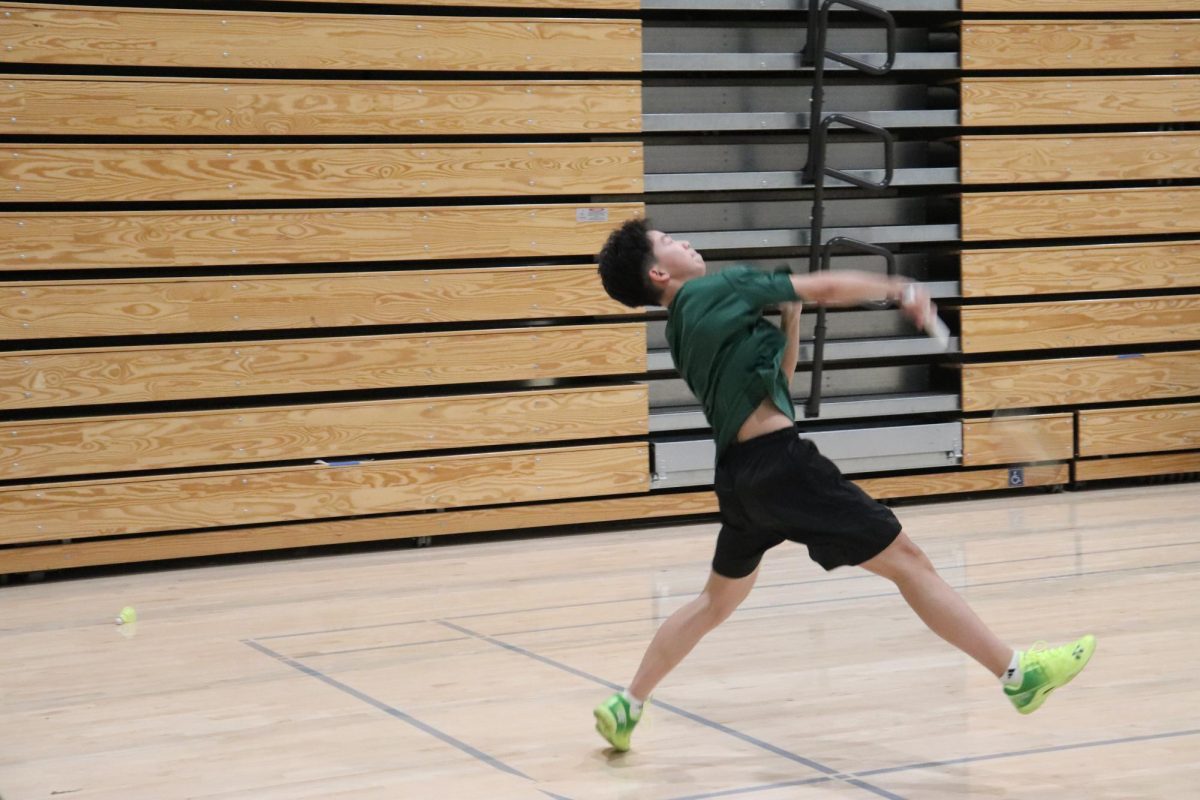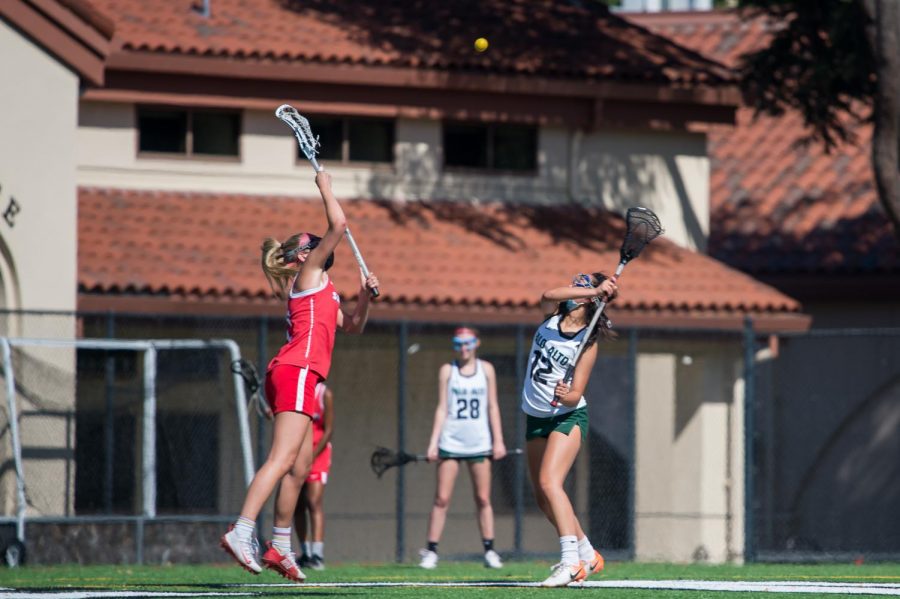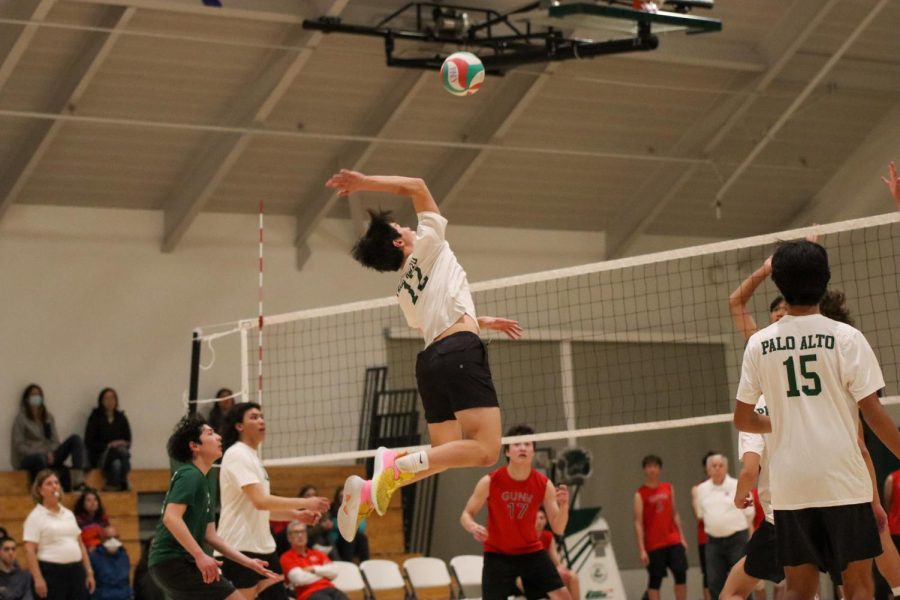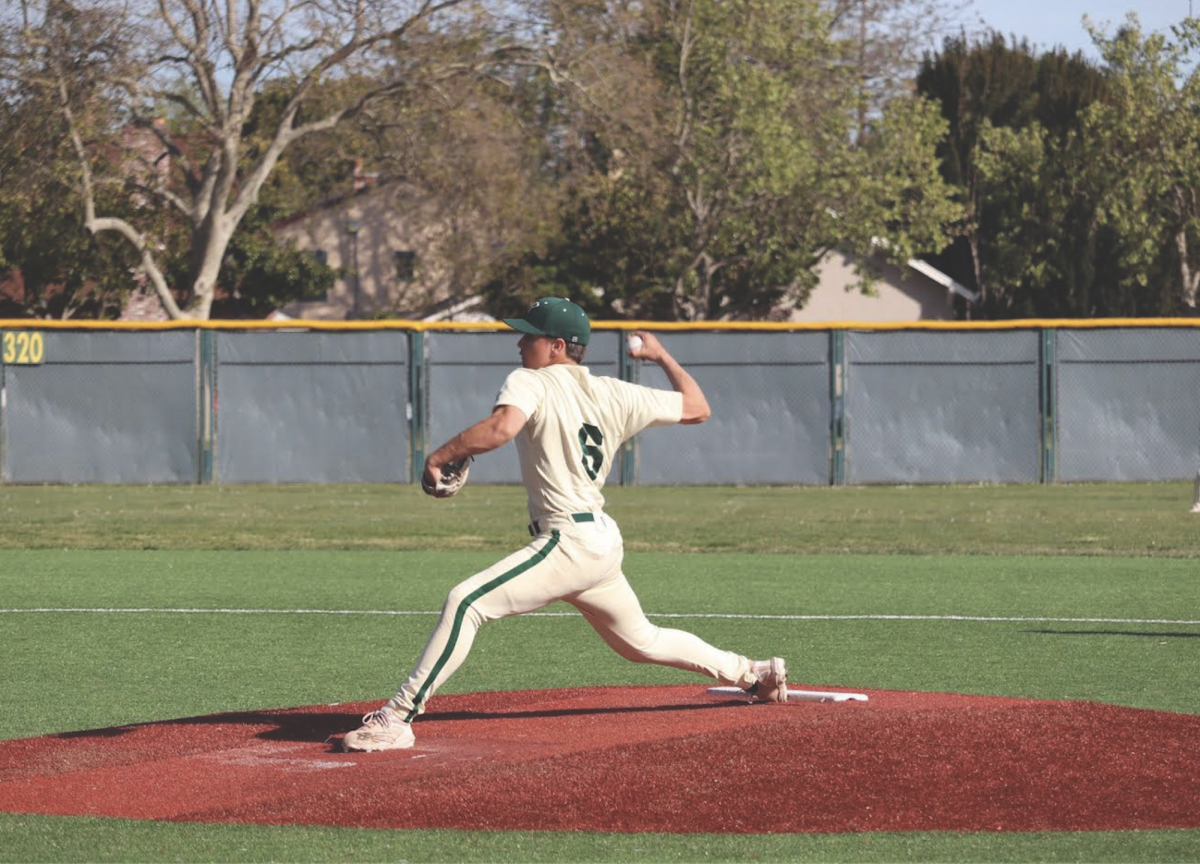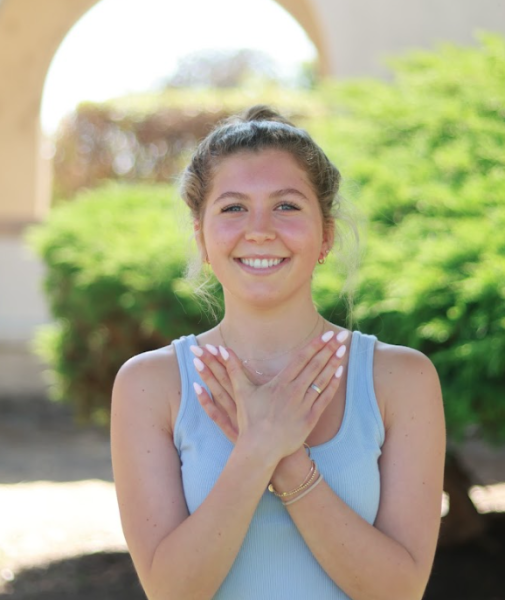Anyone who passes by the Greene Middle School field on a Saturday morning will see hundreds of little kids running clumsily around chasing soccer balls. Many of us were once members of this herd, and have fond memories of our years with the youth soccer club AYSO. But what many people ignore is that these kids are gaining long-term benefits that will aid them throughout their lives.
Childhood athletics help kids learn cooperation, friendship and patience, all while allowing them to exert their energy in positive ways. Along with that, these benefits will carry with them into adulthood.
In a high school environment filled with academic pressures and screen time, sports serve as a healthy outlet for stress and anxiety. Engaging in sports can teach athletes how to manage their emotions, stay focused, and maintain a balanced mental state. Paly is known for our strong athletics program, and many of the student athletes that make up that program have been a part of the sports world for a large part of their lives.
According to the National Center for Health Statistics in 2020, 54.1% of children aged 6-17 years participated in sports in the past 12 months. But how does that reflect in the community at Palo Alto High School?
After speaking with a plethora of athletes and non-athletes, students generally expressed their gratitude towards their parents for putting them in sports in early childhood even if they did not continue that sport in later age.
Freshmen Melody Xu started swimming at the age of four, and thinks that starting at such a young age contributed positively to her character development.
“I competed in swim events, and though I did not always win, I learned what it is like to accept defeat and learn to improve my mistakes early on, which helped me tremendously currently and in the future,” Xu said.
Learning and accepting that mistakes are a part of life is just one of the benefits that come with athletics. Likewise, children are more successful in learning from those mistakes because they have malleable brains that can react to errors, and make changes faster than older athletes.
Along with the educational aspect of sports, they allow children to not only release energy and get tired-out, but also get “feel-good” neurotransmitters our brains search for. Junior Henry Harding has played baseball since he was three years old, and attributes his athletic abilities and good mental health to his early childhood experiences with athletics.
“Physical exercise triggers the release of endorphins, which are natural mood lifters that overall improves mental resilience,” junior Henry Harding said.
Kids have a lot of energy, which can either be released in this way or be released in more negative ways. Athletics give kids an outlet to release their anxiety through kicking a soccer ball rather than taking their anger out on others.
“I used to have intense temper tantrums, so my parents decided to put me into gymnastics when I was 6 to get my anger out in a healthier way,” said a senior who wished to remain anonymous. “I remember coming home talking about all of the cool tricks I learned instead of crying and screaming to my parents.”
Along with the benefits, we also need to acknowledge the drawbacks of starting sports from a young age. Sophomore An Nguyen understands that the caveat to athletics is that it can be serious and tear away the enjoyment of the sport..
“To get really good, you have to be serious about the sport from a young age, but that can be stressful and take away the joy that comes with athletics,” Nguyen said.
Children in sports aren’t just playing games; they are building the foundation for their future, and it is important that being an athlete doesn’t take priority over the joyful moments of being a kid.[/pullquote] “I found something I really enjoy and I’ve made a lot of connections through it” — Holden Lee '25
Instead, they should help build a sense of community within the young athletes. Junior Holden Lee has played tennis since he was six, and is still playing today because of the positive experience he has had.
“I found something I really enjoy and I’ve made a lot of connections through it,” Lee said.
Making connections is a large part of child development, Hilary McDaniel, instructor of the Childhood Development pathway has a different perspective on modern day athletics.
“Strict sports, like competitive soccer or baseball clubs, can have a negative impact on a child’s life,” McDaniel said, “In these sports, negative feedback and harsh criticism can leave children with an over competitive attitude and cause anger issues later in life.”
McDaniel is not alone in her critiques of early childhood sports. According to an article published in 2019 by Miami University professor of sport leadership and management, Dr. Thelma Horn, “Self-fulfilling prophecies happen when expectations become a reality, or when biases and initial judgments dictate athletic development and achievement.”
Coaches who exhibit these kinds of biases often perceive athletes as being either high-expectancy or low-expectancy players. Young athletes are particularly vulnerable to this bias because most have not yet fully developed. This puts children on diverging paths that an either limit their potential or lead to outright failure.
This aggressive environment and tricky scenarios call for some speculation as to how beneficial competitive teams are for younger atheltes.
“I think, if I were a hundred percent honest, I think it would be more beneficial if parents/adults were minimally involved. Like just running out and forming their own games on their own terms. Learning to make their own teams and also figuring out disputes by themselves. Where is the children’s ability to develop their own sense of agency when kids are dictated by an overcontrolled force, like an overbearing coach,” McDaniel said.
I think, if I were a hundred percent honest, I think it would be more beneficial if parents/adults were minimally involved”
— Hilary McDaniel
That being said, through physical fitness, character development, self-confidence, social interaction, and improved mental health, young athletes who are high expectancy acquire a toolkit that will serve them well throughout their lives. Encouraging children to engage in sports is not just about winning medals, but about nurturing well-rounded individuals who are equipped to face life’s challenges with grace and resilience.
This calls to the importance of positive coaching. Parents and coaches must understand that skill levels will vary. Progression rates will be uneven. Some players will want feedback that reduces their anxiety. While others will thrive on information that drives performance. And so on. They should start with the expectation that everyone can improve. The growth mindset should always stay strong.
So, whether they’re playing on a soccer field, in a swimming pool, or on a basketball court, let’s celebrate the incredible journey of children in sports and the boundless opportunities it provides for their growth and development.



